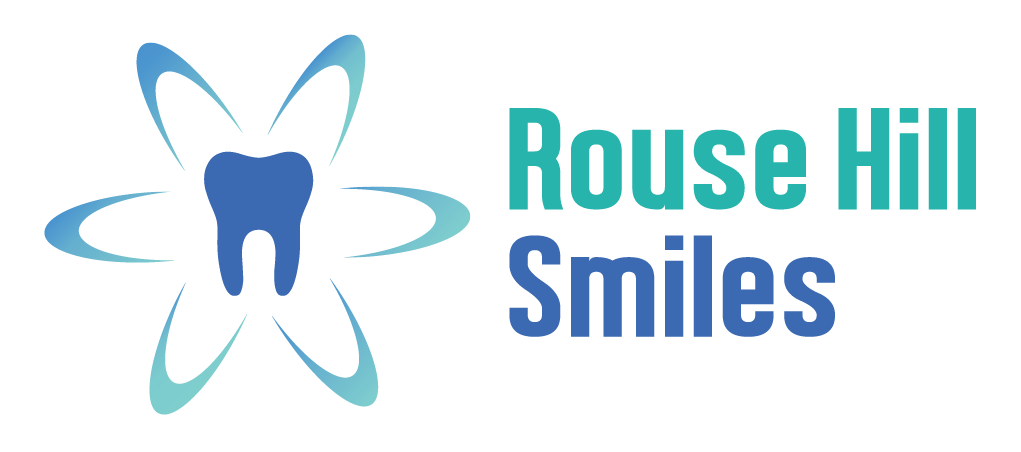How Long Does Wisdom Tooth Pain Last?
rousehill
26 March 2021
No Comments
One of the most popular dental procedures is wisdom tooth removal. Recovery from a wisdom tooth extraction can take up to two weeks. Taking proper care of a wound can help a person recover as quickly as possible.
Wisdom teeth are large teeth that grow at the back of the mouth. Between the ages of 17 and 25, most people’s wisdom teeth emerge. Some people’s wisdom teeth may not come through at all.
For some people, there might be constant wisdom tooth pain, while for some, it may arise while chewing food or drinking beverages or if anything is touched at the same point. It is very well suggested to get the wisdom tooth extracted even before it causes a severe problem such as wisdom tooth pain in jaw.
Why Does My Wisdom Tooth Pain Come and Go?
Wisdom teeth pain isn’t always constant. Its erratic nature arises from the dynamic eruption process:
- Pressure Fluctuations: As the wisdom tooth pushes through bone and tissue, pressure builds, causing throbbing pain. Then, the tooth might hit a softer area, temporarily alleviating the pressure and pain.
- Inflammation Waves: Inflammation surrounding the erupting tooth isn’t static. It flares up when pressure intensifies, leading to pain, and subsides somewhat afterwards, creating a cycle of discomfort and temporary relief.
- Nerve Involvement: Sometimes, nerves get irritated during the eruption, resulting in sharp, shooting pain that comes and goes depending on nerve sensitivity and pressure variation. Sometimes, these lead to wisdom tooth gum pain or discomfort reaching the jaw.
What Does Wisdom Teeth Pain Feel Like?
Pain descriptions vary, but the most common sensations include:
- Throbbing ache: This is the most frequent type, localised around the wisdom tooth or radiating to the jaw, ear, or head.
- Sharp shooting pain: This can occur if nerves are irritated, often described as electric shocks or stabbing sensations.
- Dull pressure: A constant, heavy feeling in the jaw or cheek due to underlying pressure and inflammation.
- Gum pain: The gums surrounding the erupting tooth become red, swollen, and tender, causing discomfort, especially on the touch.
How Long Does Wisdom Teeth Pain Last?
The duration of wisdom teeth pain is highly individual, depending on several factors:
- Eruption complexity: Simple eruptions resolve within days, while impacted or angled teeth cause pain for weeks to months.
- Infection: Infected wisdom teeth lead to intense, persistent pain until addressed by a dentist.
- Individual pain tolerance: Some people perceive pain more intensely than others, influencing their experience.
How to Ease Wisdom Tooth Pain:
While you can’t control eruption, various methods offer relief:
- Over-the-counter pain relievers: Ibuprofen or acetaminophen can manage mild to moderate pain caused as a result of wisdom tooth pain.
- Topical pain relievers: Gels or ointments applied directly to the gums numb the area.
- Cold compresses: Reduce swelling and inflammation by applying a cold compress to the cheek for 15-20 minutes.
- Saltwater rinses: Gently rinse your mouth with a little mixture of warm water and salt to cleanse and soothe the gums. This is one of the quickest ways to alleviate wisdom tooth pain.
- Good oral hygiene: Brushing and flossing regularly, especially around the wisdom tooth, helps prevent infection. This helps avoid wisdom tooth pain altogether.
Remember: Seek professional dental care if the pain is severe, doesn’t respond to home remedies, or you experience fever, pus drainage, difficulty breathing, or persistent swelling. Early intervention ensures swift relief and avoids complications. There can be many complications due to wisdom teeth. The complications that can possibly arise are as follows:
Is Your Wisdom Tooth Pain a Cause for Alarm?
Wisdom tooth pain is common, but not all aches are created equal. While some discomfort during an eruption is expected, certain signs indicate your pain might be serious and require immediate dental attention.
Red Flags to Pay Attention:
- Intense, throbbing pain: This could signal infection, especially if it worsens over time or doesn’t respond to over-the-counter pain relievers.
- Fever, chills, and swelling: These symptoms scream “infection” and demand prompt dental intervention to prevent complications.
- Difficulty breathing or swallowing: This could be due to severe swelling or an abscess, requiring immediate professional care.
- Persistent numbness or tingling in the face: This might indicate nerve damage due to pressure or infection, necessitating professional evaluation.
- Pus drainage from the gums: Pus is a clear sign of infection and requires immediate professional attention.
Not all wisdom tooth pain symptoms warrant immediate action. Mild pain, moderate swelling, and temporary discomfort might resolve on their own. However, when in doubt, consulting your dentist is always the safest option. Going for a procedure can cause wisdom tooth removal pain which can also be subsided by painkillers prescribed by your doctor.
Don’t delay seeking help if you experience any of the red flags mentioned above. Early diagnosis along with prompt treatment can prevent further complications, minimise pain, and ensure a smoother journey through wisdom tooth eruption.
Why Does Wisdom Tooth Pain Get Worse at Night?
It’s not your imagination – wisdom tooth pain often amplifies at night. While the exact reason isn’t fully understood, several factors contribute to this nocturnal discomfort:
- Reduced distractions: During the day, activities and mental focus can distract you from pain. At night, with fewer distractions, your attention shifts toward the discomfort, making it seem more pronounced.
- Increased blood flow: When you lie down, blood flow naturally increases to your head, putting more pressure on already inflamed tissues around the wisdom tooth, intensifying pain.
- Teeth grinding: Some people unconsciously grind or clench their teeth during sleep, putting additional pressure on the wisdom tooth and surrounding areas, leading to pain.
- Posture: Sleeping on your side might inadvertently apply pressure to the jaw and inflamed wisdom tooth, worsening pain.
- Binge Eating: Some people have a habit of binge eating at night or eating sugar as dessert for their dinner. This inflames the area, causing more wisdom tooth pain.
Is It My Wisdom Tooth or Something Else?
Distinguishing wisdom tooth pain from other dental issues can be tricky. Here’s how to look for the clues:
Location: The pain is typically localised around the back of your mouth, near the jaw angle, where your wisdom teeth reside. However, sometimes, pain can radiate to the ear, jaw, or head, making pinpointing the source challenging.
Symptoms: Look for accompanying symptoms like gum inflammation, swelling combined with bad breath, or difficulty opening your mouth, which are common with wisdom tooth issues.
Age: Wisdom teeth usually erupt when the person is in the age bracket of 17 and 25, so if you fall within this age range and experience similar symptoms, wisdom teeth become a stronger suspect.
Self-evaluation limitations: While these pointers can offer insight, definitively diagnosing the cause of pain requires professional expertise.
Complications:
Whenever a wisdom tooth doesn’t get proper space and alignment for it to grow or even come out of the gums, it gets impacted and causes severe pain to the rest of the teeth as well. This can cause the angle of the tooth growth to change, causing massive problems to the rest of the teeth socket, eventually causing discomfort. A wisdom tooth may also become partially impacted, where you are able to see the crown of the tooth emerging through the gum line.
Chronic gum infections can be caused due to partially impacted wisdom teeth due to the trapped food particles around the emerging crown which further causes accelerated tooth decay of the crown and nearby teeth. This is what causes heavy complications and leads to tooth extraction.
The Extraction Procedure:
When the wisdom tooth complicates the issue, either a dental surgeon or a dentist removes the pain-causing wisdom tooth by giving local anaesthesia to the patient to numb the area. With pressure applied on the rest of the teeth, the wisdom tooth is then extracted out of the teeth socket. It so happens that the affected tooth may break down into pieces during extraction and cause minor cuts to the gums.
Simple extractions involve little time and effort, and sutures are usually not required. If your wisdom teeth are impacted or partially impacted, you may require a difficult extraction involving a gum incision to expose the tooth. Your dentist may divide the tooth into parts to make extraction easier in some circumstances.
Your dentist will clean the region and remove any dirt or tooth particles left behind after the tooth has been removed. Gauze is applied to the incision site to aid clotting and control bleeding.
How long does it take to recover from wisdom teeth removal?
The wisdom teeth removal recovery generally takes 2-3 days to heal completely. However, pretty much superficial healing is done within a day. But the pain may last for a week or two.
The Healing Process:
Recovery after a wisdom tooth extraction varies from person to person. Some people may be in pain for a longer period of time than others. Swelling in the lips and cheeks, mild apparent bruising, a stiff or sore jaw, and numbness or tingling in the mouth are all possible side effects of the surgery. The process of healing is as mentioned below:
Generally, blood clots are seen within 24 hours of extraction thus providing a protective layer over the exposed bone and nerve endings, as well as a foundation for new soft tissue to develop.
- Decrease in swelling in the mouth and cheeks – in the 2-3 days
- Stitches (if any) will be removed 10-14 days
- Bruising would fade in 2 weeks
- Discomfort and pain may relieve in 2-7 days
Home Care Tips:
While the wound heals, it is essential to keep it clean. Food can easily get stuck in the place where the tooth was removed because people still need to eat and drink. This can make it difficult to keep the wound clean. In the meantime, there are several over-the-counter medical treatments and natural home remedies available.
- Numbing gel – Application of the gel to the affected area
- Ibuprofen – Tablet dosage to kill the pain
- Ice Pack – To be applied externally on the cheeks
- Salt Water Rinse – This would kill the bacterias
- Cloves – The cloves extracted juice in the mouth will act as a painkiller
- Onions – Again, the juice will act as pain relief
Hope this article has given you adequate information about the impacted wisdom tooth, kits removal and remedies. Rouse Hill Smiles Dental Care aims to deliver gentle and effective dental care. We provide a complete examination and go over all your choices with you, whether you are coming in for a wisdom teeth extraction or just want to find out if the treatment is best for you.
We assure your comfort by providing you with all of the information you require about wisdom teeth pain relief and the extraction process.
Our Principal Dentist
Dr. Teena and the Rouse Hill Smiles team are dedicated to providing patients of all ages with the highest quality of care.

Dr. Teena Bali
Dentist
Quick Contacts
- Rouse Hill Plaza G07-G08, 2-4 Aberdour Avenue Rouse Hill, NSW 2155
- enquiries@rousehillsmilesdentalcare.com.au
- (02) 8320 0548







